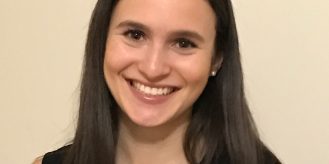.jpg) This year’s MJB Health Advisory Committee meetings in Israel had a new and dynamic structure. Smokler Center Director Bruce Rosen took advantage of the visit by leading professionals in U.S. health care, to embark, with his entire staff, on a travelling symposium focusing on health care in Israel’s northern periphery.
This year’s MJB Health Advisory Committee meetings in Israel had a new and dynamic structure. Smokler Center Director Bruce Rosen took advantage of the visit by leading professionals in U.S. health care, to embark, with his entire staff, on a travelling symposium focusing on health care in Israel’s northern periphery.
Through a series of meetings with leading health care managers and policymakers in the Galilee, the Center’s staff and Health Advisory Committee, chaired by Prof. Gary Freed, Director of the Division of General Pediatrics at the University of Michigan School of Public Health, were able to better understand the special challenges for service provision and retaining professionals in the periphery. They were also able to explore the opportunities presented by the planned opening of a new medical school in Zefat.
The Ministry of Health is eager for the Center to get more involved in studies related to regional disparities, including learning from Israeli and international experience about ways to address them, and this was an important learning experience for the entire Center staff. Moreover, the members of the Health Advisory Committee were able to share their vast experience and knowledge of the issues at hand with Center staff and local professionals.
In visits to the Emek Medical Center in Afula and Ziv Medical Center in Zefat, the group heard more about the challenge of attracting first-rate medical specialists to the area, and how the recent decision to establish a new medical school in the Galilee can be instrumental in upgrading healthcare services in the periphery. The group also studied the special concerns for family medicine in the community setting, some of which are particularly significant in the periphery.
In addition, the group was able to experience firsthand the innovative information system for linking hospital and community care which is implemented by Clalit, Israel’s largest HMO. This system was recently evaluated by a team led by senior Institute researcher Nurit Nirel. They also visited Clalit’s regional headquarters in Nazareth Illit, where they heard about Clalit’s impressive efforts to reduce health disparities in the Galilee between rich and poor, as well as between Arabs and Jews, through their quality assurance program.
In the coming year, the Center may undertake one or more projects related to the region visited. Having met some of the senior professionals and gained more in-depth knowledge of the services available in the region will be to great advantage.
The time spent on the bus proved to be as valuable as the site visits themselves. It was used by staff and committee members to process together the “raw data” that was collected during their visits, and to build the staff-advisory committee relationships that are vital to the Smokler Center’s dynamism and future development.
Symposium on U.S. health care reform
The Committee visit to Israel was rounded off with a symposium at the Institute about features of the proposed U.S. health care reform, with presentations by the Committee members and leading Israeli policymakers. The symposium presented an important opportunity for exchanging ideas, and to reflect on the U.S. reform from an Israeli perspective.


